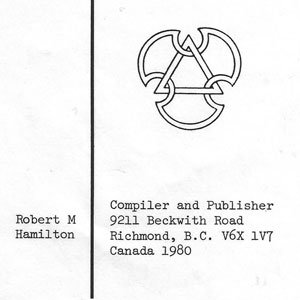
LIME: In Bark Media
Culture Orchid Doctorby Robert M. [Bert] Hamilton (Compiler)
Originally published in The Orchid Doctor in 1980 and 1988
Posted by Sys Admin about 9 years ago.Article Blog Article Index
Lack of it in bark leads to greater acidity in the mix; it is a common almost universal practice (1) to add lime to bark potting mixes; can be added as dolomite to the surface of the pot mix, or ground oyster shell or hydrated lime. OA87-205
Share on Social Media:
More The Orchid Doctor Articles under the Heading Lime
| Lime | Comments |
|---|---|
| LIME: Added to Potting Mix To get the potting mix to 6pH add approximately 20 lbs. of lime per cu.yd. of bark; use dolomite lime or oyster shell flour, or even better, half-and-half of each. A071-29 | 0 |
| LIME: Application to Plants A common mineral deficiency is calcium which is usually lacking in commercial fertilizers; it is sometimes supplied by means of limestone or dolomite, whose usual alkalinity is partially offset in the potting mix by acidic components like redwood; gypsum is a possible means to a solution if lime is lacking. OIE85Jy-13 | 0 |
| LIME: Dolomite, Its Characteristics A mined, fossil-like form contains both calcium carbonate and magnesium; it adjusts the pH of bark; usually added with oyster shell because the two are better than one alone; beneficial in areas where the water is high in sodium. C74-51It does not react as fast as hydrated lime; it contains magnesium. A61-735 | 0 |
| LIME: Oyster Shell, Its Characteristics It is calcium carbonate lime; ground up shells comes in coarse type for chicken scratch or flour type used by many orchid growers. C74-51 | 0 |
| LIME: Pointers About it Composted fertilizers never contain it; it is always added to peat mixes in order to supply missing calcium; Rockwool and Oasis have no buffering ability for lime; the deficit of Calcium is revealed in weak leaves, easily broken spikes, discoloration of flowers; calcium develops firm cell walls. OA87-201 | 0 |
| LIME WATER: Recipe One tsp. of hydrated lime is dissolved in a gallon of water; may be used to adjust the pH of potting media, upwards. A79-898; 1/2 tsp. limestone per 6 inch pot raises pH 5.0 up. A80-739 | 0 |
New Topics
- Al Schotz asked question Gomesa bifolia in category General Discussion
- Kjell Meershoek started topic Re-inventing an orchidarium.. your thoughts in category Curiosity
- David George asked question Odom's Fascination - an unusual orchid in category General Discussion
- Carol Holdren asked question Grow Tent in the Garage in category General Discussion
- David George asked question rlc Caotan Beauty found at Home Depot in category Cattleya Alliance
New Comments
- Linda Hartman commented on topic "rlc Caotan Beauty found at Home Depot " by David George
- Mary Lane commented on article "Aerangis citrata" by Tom Kuligowski
- Kjell Meershoek commented on topic "Re-inventing an orchidarium.. your thoughts" by Kjell Meershoek
- Inga Kruppa commented on member plant Acacallis cyanea Х Paradisanthus micranthus by Inga Kruppa
- Carol Holdren commented on topic "Odom's Fascination - an unusual orchid" by David George
- Dr. Florian Wolf commented on topic "Wild. Lisa Devos" by Maria Fernandez
- Michael Valcarcel commented on member plant Rlc. Chief Takanaka by Walceli Muniz Valverde
- Michael Valcarcel commented on member plant Rlc. Montana Spirit by Michael Valcarcel
- Michael Valcarcel commented on member plant Ctt. Blazing Sun by Michael Valcarcel
- Michael Valcarcel commented on member plant Bc. Spotted Clown by Michael Valcarcel
- Maria Skrypnyk commented on member plant Yamadara Redland Sunset by Maria Skrypnyk
- André Pessina commented on topic "Odontocidium Orchid fungus?" by Kristin Dorris
- Linda Hartman commented on topic "Image of a plant please" by Leshya Perkins
- Paul Reavis commented on orchid Milt. Kismet
- Christiaan Viljoen commented on member plant Psh. fragrans by Christiaan Viljoen
- Christiaan Viljoen commented on member plant Z. maculatum by Christiaan Viljoen
- Christiaan Viljoen commented on member plant C. Gaskell-Pumila 'Azure Star' by Christiaan Viljoen
- Robert H. Findlay commented on member plant Rlc. Joy Sokabe var. Volcano Queen by Sally K
- James Lunsford commented on member plant Lc. Sagarik Wax 'African Beauty AMO/AOS x Blc. Cherry Suisse'Kauai' HCC/AOS var. Cattlyea 'Hybrid ' by James Lunsford
- John Varigos commented on orchid Bulb. schwarzii